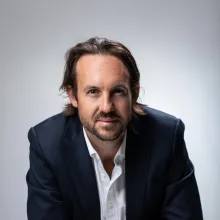Connecting science with policy and practice: Lessons from science-policy ‘Bright Spots’
This project aims, to develop empirically grounded guidance on how to improve the use of marine science in decision-making processes, and build the capacity of academic researchers to engage more effectively with policy and practice to achieve real world impacts.
Project status
Content navigation
About
While science produces more knowledge than ever before, our oceans are facing a worrying amount of challenges. The governance of marine socio-ecological systems requires the integration of best-available scientific knowledge into decision-making processes, and science-informed policy responses to global change are a key topic, e.g. for the UN Decade of Ocean Science. Accordingly, calls for scientists and policy-makers to interact more profoundly are as logic as plenty. While often scientists hope to have impact on policy and practice, there is little available evidence on how to do this most effectively, and where some evidence does exist, it has been based on research characterized by identifying failure of science to reach policy-making. Moving forward, it is necessary to understand and learn from ‘bright spots’ in science-policy knowledge exchange – situations whereby science has successfully influenced policy and practice. Hence, the goal of this project is to empirically evaluate science-policy-practice bright spots around marine conservation and identify key principles of such successful transitions. Thereby, different bright spot examples are analyzed in the marine science/management arena, ranging from species to ecosystem levels and comprising various perspectives, scopes and scales. Accordingly, this project aims, to develop empirically grounded guidance on how to improve the use of marine science in decision-making processes, and build the capacity of academic researchers to engage more effectively with policy and practice to achieve real world impacts.

